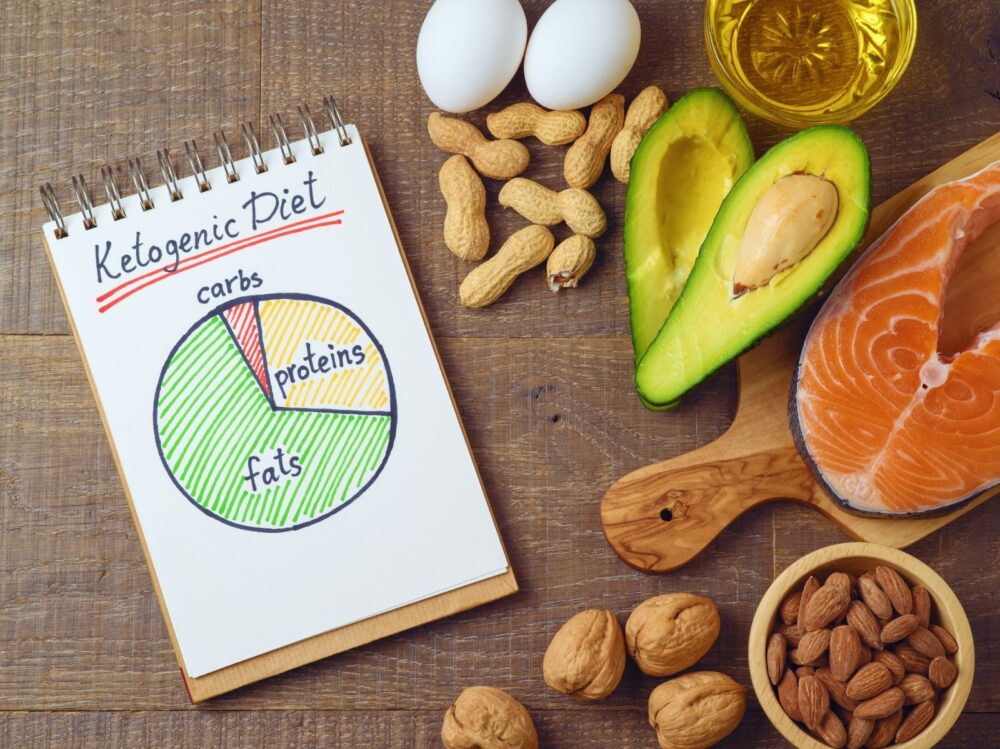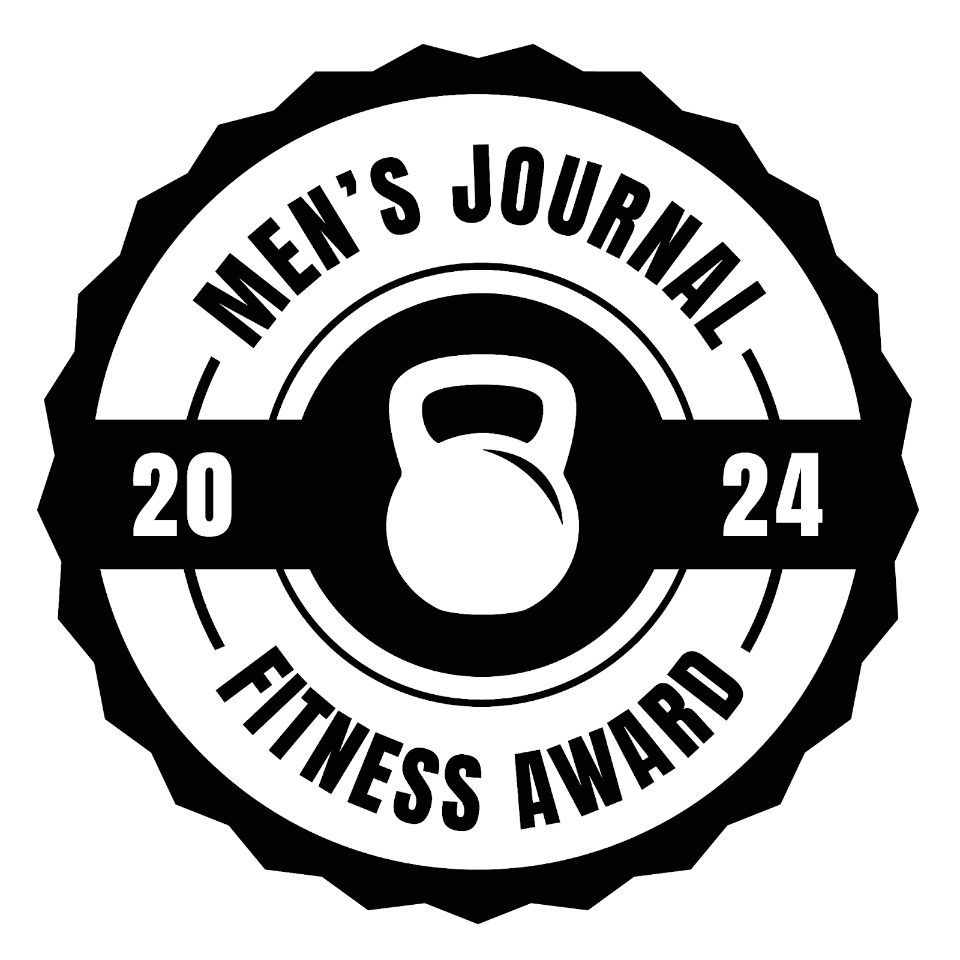The keto diet, or ketogenic diet, has skyrocketed in popularity since the 90’s. It focuses on a high-fat, low-carb diet, which results in a state known as ketosis. Despite its recent trendiness, there is what seems to be endless research supporting the efficacy of this diet -making it an almost sure-fire way among many to lose some weight.
The keto diet’s goal is maintaining a state of ketosis to shed some pounds. But to get the most out of keto, you must also remain cognizant of your body’s other needs. Proper hydration should be a key concern for everyone, and for those chasing or maintaining ketosis, hydration levels also play an integral part in diet success. Additionally, getting the recommended amount of liquids will help stave off symptoms synonymous with the dreaded keto flu.
Because low-carb diets typically retain less water, it’s essential to know how much fluid intake is necessary. Keep reading to learn how ketogenesis ties into dehydration, and how much fluid intake is necessary while on the keto diet.
Why Keto Dieters are Prone to Dehydration
Even though it sounds catchy, water weight isn’t a desirable feature to catch in the mirror. The keto diet helps dieters target that weight, but in the process, it can also deprive the body of its natural ability to resist dehydration.
Less Salt Intake
One key way the ketogenic diet helps practitioners with weight loss is its removal of sodium from user’s everyday eating habits. Salt helps the body retain its water intake, maintain electrolyte levels, and avoid cases of mild dehydration in situations where liquids aren’t readily available.
More Activity
Diet and exercise work in tandem to produce healthy weight loss. However, a keto dieter’s ability to retain water is purposefully diminished. This can lead to severe dehydration for active individuals on keto, or people frequently exposed to warm conditions.
Not Enough Electrolytes
Not all natural sources of electrolytes are keto-friendly, so deficiencies can occur. A lack of electrolytes can mean your body isn’t getting the most out of the water you’re putting into it.
Signs and Effects of Dehydration
What happens if you don’t drink enough water on keto? Dehydration can begin a vicious cycle of symptoms that cause and magnify each other. Throughout a long day of work, errands, or parenting, it’s not always first nature to focus and listen to what your body’s trying to say. Learning the warning signs on display when you’re heading towards mild dehydration can help you recognize a problem and avoid escalation.
Muscle Cramps
Weakness in the muscles, muscle cramps, and a rapid heartbeat are sure signs of dehydration. These issues may not be immediately apparent, but they can put a strain on the body and cause fatigue, nausea, irritability, and lethargy.
Loss of Consciousness
That lethargy can lead to haziness, dizziness, and fainting. This stems from the sudden drop in blood pressure that dehydration can initiate. Normal blood circulation requires normal hydration levels, and a lack of water can deprive the brain of blood and force the heart to work harder. If you’re feeling dizzy after standing or you’re experiencing tunnel vision, it’s time for a glass of water with electrolyte powder.
Dark Urine
Your urine should be clear or a pale yellow. Dark urine or long periods between urination can indicate dehydration.
The Importance of Staying Hydrated While on the Keto Diet
The keto diet’s methodology can put dieters in danger of dehydration, but there are a number of diet-based incentives to getting the right amount of water per day.
Metabolism
Keto diets help people lose weight by turning fat and fatty acids into ketones, which are then used as an energy source. For the human body to turn fat into ketones, it needs plenty of water, as this process doesn’t just occur in the digestive tract—the body’s stores of fat are also converted to ketones, providing an extra energy boost between meals. Water is an essential tool for getting the most out of your keto diet.
Keeping Cravings in Check
As dehydration begins to take hold, some of the side effects that come along with it are the same signs you may see if you’re suffering from hunger. Weakness, dizziness, and fatigue are telltale signs of both, but before succumbing to a snack attack in the face of any of those ailments, think about your daily water intake. If you think you’ve fallen behind, reach for your water bottle instead.
Being Prepared for Physical Activity
If exercising is part of your weight loss plan, the danger posed by dehydration should already be on your mind. If you’re exercising while in ketosis, that danger increases due to the lack of stored water in the body. If you’re already anticipating planned activity, also plan to properly hydrate both before and after working out. Bonus points if you’re making sure your body is receiving its fair share of electrolytes. For someone maintaining ketosis, this may require the use of a product.
How Much Water Should You Drink on Keto?
Rule of thumb states a person should divide their body weight in half and drink that many ounces of water daily. For example, if someone weighs 160 pounds, they’ll need to take in 80 ounces of water a day. That amount could be more for someone on keto, since the diet alters your body’s water and electrolyte levels.
For a more accurate take, the National Library of Medicine states that adults should drink 2.7 to 3.7 liters of water over the course of one day. However, the organization also stresses there’s not a universally applicable recommendation for daily water consumption. It says a variety of factors can influence your specific needs, including age, weight, activity level, and diet.
How To Stay Hydrated While on the Keto Diet
Luckily, a variety of options can be utilized to remain properly hydrated while maintaining ketosis.
Drink When You’re Thirsty
How do you rehydrate on keto? The easy answer is to drink enough water. Your body will do a good job of telling you when it’s thirsty, so pay attention and always keep water handy. If you’re not a fan of water, try adding natural citrus juice for flavor.
Stay Away From Dry Foods
This can be difficult since keto already influences your everyday diet, but foods rich in water like bone broth, avocado, and most vegetables are also low in carbohydrates.
Supplement Your Electrolyte Intake With DripDrop
Electrolytes allow your body to take advantage of the water you’re putting into it, and equipping yourself with more electrolytes means you’ll be better prepared to enjoy the full benefits of proper hydration. DripDrop is a great option for supplementing your body’s electrolyte count. One packet includes three times the electrolyte count of the average sports drink with half the sugar. Additionally, for those looking for dehydration relief without the sugar, DripDrop offers DripDrop Zero, a zero sugar option.
Stay Hydrated with DripDrop ORS and Save 25%
The keto diet has built-in causes that can lead to the undesirable effect of dehydration. Managing them and maintaining ketosis can be tricky, but with self-monitoring, proper water intake, and supplemented electrolyte levels, keto dieters can turn water into an integral part of their weight loss routine.
DripDrop's multi-flavor pouches can be a quick, easy, and diet-friendly part of that routine. Subscribe to DropDrop and save 25%.














